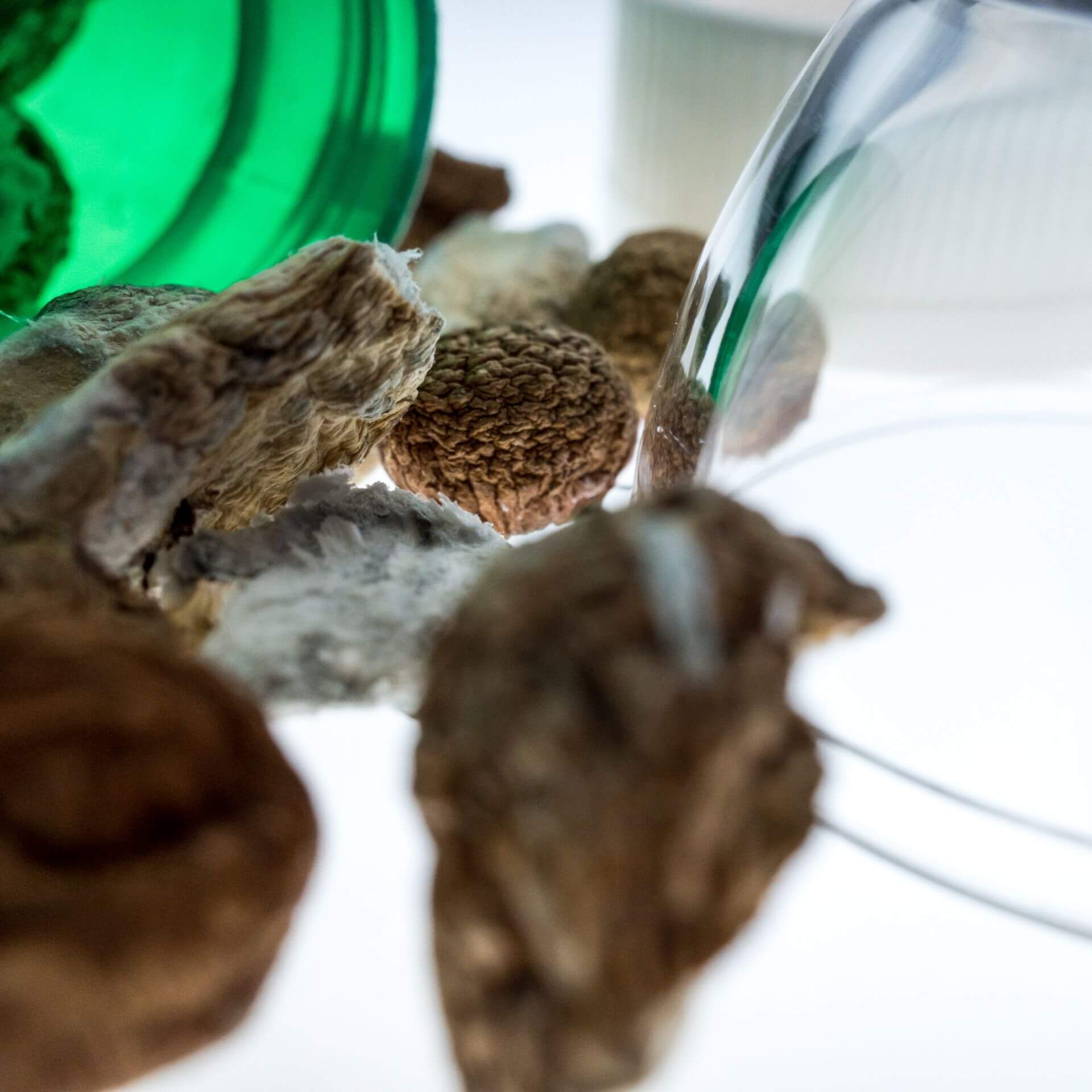Hallucinogen Use Disorder
Signs, Health Effects, and Solutions
Hallucinogen Use Disorder represents a complex psychological condition affecting individuals who develop problematic patterns of hallucinogenic substance use. Unlike traditional addictions, this disorder primarily involves psychological dependence rather than physical withdrawal symptoms.
Classic hallucinogens like LSD and psilocybin, along with dissociative drugs such as PCP and ketamine, can lead to significant impairment in daily functioning. While not physically addictive in the conventional sense, these substances can cause persistent perceptual disturbances, risky behaviors, and mental health complications.
Understanding the unique characteristics of hallucinogen addiction is crucial for effective recognition, intervention, and treatment of this increasingly recognized disorder.

What Is Hallucinogen Addiction?
Hallucinogen addiction, clinically known as Hallucinogen Use Disorder, is a psychiatric condition defined by the Diagnostic and Statistical Manual of Mental Disorders (DSM-5) as a problematic pattern of hallucinogen use leading to significant impairment or distress.
Unlike substance dependencies involving alcohol or opioids, hallucinogen addiction rarely involves physical tolerance or withdrawal symptoms. Instead, it’s characterized by psychological dependence, where individuals continue using despite negative consequences.
The disorder requires at least two diagnostic criteria within a 12-month period, including persistent cravings, unsuccessful attempts to reduce use, or continued consumption despite social, occupational, or health problems. Prevalence rates remain relatively low compared to other substance use disorders, though certain demographics, particularly young adults, show higher susceptibility to developing this condition.
Hallucinogen with High Addiction Potential
Recognizing which hallucinogens carry the highest risk for addiction is essential for clinicians and individuals alike. Certain hallucinogenic substances stand out for their strong potential to cause dependence, primarily because of their powerful psychoactive effects, rapid onset, and the intensity of the experiences they induce.
Classic Psychedelics
Classic psychedelics, such as LSD (Lysergic Acid Diethylamide), psilocybin, and mescaline, produce profound changes in perception, mood, and thought. They primarily act on serotonin receptors, leading to visual and auditory hallucinations, altered sense of time, and enhanced introspection. These drugs rarely cause physical dependence but can lead to psychological issues and risky behaviors.
Dissociative Hallucinogens
Dissociative hallucinogens, including Phencyclidine (PCP or Angel Dust), dextromethorphan (DXM), and Ketamine, create feelings of detachment from the body or environment. They disrupt normal brain signaling, resulting in distorted sensory perceptions, confusion, and sometimes memory loss. Some dissociatives have moderate to high addiction potential and may cause both psychological and physical dependence.
Deliriant Hallucinogens
Deliriants, such as diphenhydramine (at high doses), datura, and belladonna, induce a state of delirium characterized by intense confusion, disorientation, and vivid, often frightening hallucinations. These substances can impair memory and cognition, sometimes leading to dangerous behaviors. They are less commonly used recreationally due to their unpleasant and unpredictable effects.

Causes and Risks of Hallucinogen Addiction
The development of hallucinogen addiction is a multifaceted process involving complex interactions between biological, psychological, and environmental factors.
Key risk factors include:
- Family history of substance use disorders
- Genetic variations affecting neurotransmitter metabolism
- Inherited personality traits like sensation-seeking behavior
- Predisposition to mental health conditions
- Peer pressure and social normalization of drug use
- Easy access to hallucinogenic substances
- Cultural or subcultural acceptance of psychedelic experiences
- Stressful life circumstances or traumatic events
- Lack of parental supervision or family support
- Pre-existing mental health disorders (depression, anxiety, PTSD)
- History of childhood trauma or adverse experiences
- Low self-esteem or identity confusion
The interplay between these factors creates a unique risk profile for each individual. For instance, someone with genetic predisposition combined with environmental stressors and psychological vulnerability may be at significantly higher risk for developing hallucinogen addiction.
Additionally, co-occurring mental health conditions can both increase the likelihood of initial hallucinogen use and complicate the addiction process, as individuals may attempt to self-medicate underlying psychiatric symptoms.
Understanding these multifaceted causes enables healthcare providers to develop more effective, personalized treatment approaches that address the root causes rather than just the symptoms of hallucinogen addiction.
Hallucinogen Addiction Symptoms
Early recognition of hallucinogen addiction symptoms is essential for preventing long-term psychological damage and promoting effective treatment. This disorder involves perceptual disturbances, emotional instability, and compulsive behaviors that worsen as psychological dependence develops.
Physical Symptoms
- Dilated pupils during intoxication
- Nausea and vomiting
- Increased heart rate and blood pressure
- Sweating or chills
- Tremors or muscle twitches
- Dizziness and loss of coordination
- Blurred or distorted vision
- Headaches and migraines
- Sleep disturbances
- Loss of appetite
- Fatigue after use
Psychological Symptoms
- Visual and auditory hallucinations
- Paranoia and suspicious thoughts
- Intense anxiety or panic attacks
- Mood swings and emotional instability
- Confusion and disorientation
- Memory problems and cognitive fog
- Persistent perceptual disturbances
- Depersonalization or derealization
- Depression between use episodes
- Intrusive thoughts or flashbacks
- Fear of losing control
Behavioral Symptoms
- Constantly chasing psychedelic effects
- Using in unsafe environments
- Neglecting work or school obligations
- Withdrawal from family and friends
- Risky decision-making while intoxicated
- Misuse despite negative consequences
- Spending excessive time getting drugs
- Lying about frequency or extent of use
- Isolating during or after drug use
- Choosing drugs over obligations
- Using alone to avoid detection

Health Impacts of Hallucinogen Misuse
Hallucinogen misuse can have a wide range of effects on the mind and body, often varying based on the substance, dosage, and individual vulnerability. Both short-term and long-term consequences can negatively impact physical health, mental well-being, and social functioning.
Short-Term Health Consequences
In the short term, hallucinogen misuse often leads to intense sensory distortions and hallucinations, which may cause anxiety, panic attacks, or paranoia during intoxication.
Users frequently experience nausea, vomiting, dizziness, and poor coordination, all of which can increase the risk of accidental injuries.
Elevated heart rate and blood pressure are also common effects, alongside confusion and impaired judgment that may result in unsafe decisions or risky behaviors.

Long-Term Health Consequences
With continued misuse, hallucinogens can produce lasting effects that persist long after the drug has left the system. Some individuals develop persistent perceptual disturbances, such as recurring “flashbacks,” or Hallucinogen Persisting Perception Disorder (HPPD), where visual disruptions reappear unexpectedly.
Other long-term impacts include ongoing anxiety, depression, or mood swings, as well as memory problems and cognitive impairments.
Chronic hallucinogen use may also worsen underlying mental health conditions and contribute to social withdrawal and challenges in maintaining healthy relationships.
Hallucinogen Withdrawal Syndrome
Unlike many other psychoactive substances, most hallucinogens do not cause a classic physical withdrawal syndrome. This is because drugs such as LSD, psilocybin, and mescaline typically do not produce significant physical dependence. However, stopping hallucinogen use after prolonged or heavy exposure can still lead to a range of psychological withdrawal symptoms.
Treatment Hallucinogen for Stimulant Addiction
Hallucinogen addiction treatment is uniquely complex, given the lack of FDA-approved pharmacological therapies for this condition. The most successful outcomes are achieved through structured behavioral therapies, strong social support, and coordinated treatment for any concurrent psychiatric disorders. Because relapse is common, care plans must emphasize sustained engagement and continuous support after the initial withdrawal period.
Evidence-Based Therapies

Evidence-based therapies are the cornerstone of Hallucinogen Use Disorder treatment, focusing on the psychological and behavioral aspects that contribute to ongoing substance use. Delivered by qualified professionals, these structured interventions have proven effective in research, helping individuals address the thought patterns, behaviors, and emotional difficulties.
Leading evidence-based treatment approaches include:
Alternative Treatment Methods
Addiction treatment programs
Hallucinogen Use Disorder is a complex condition that can lead to significant psychological, social, and health-related challenges. While physical dependence is uncommon, persistent use of hallucinogens can result in profound disruptions to perception, mood, and behavior, with some individuals experiencing lasting effects such as persistent perceptual disturbances or exacerbation of underlying mental health conditions.
Early recognition of symptoms, timely intervention, and comprehensive, evidence-based treatment approaches are essential for promoting recovery and minimizing harm.
With no FDA-approved medications available, behavioral therapies, integrated support systems, and ongoing care remain the foundation of effective treatment. Increasing awareness, reducing stigma, and expanding access to specialized resources can help individuals and families affected by hallucinogen addiction find the help they need and support long-term recovery.
If you or someone you know is struggling with hallucinogen use, professional help and support are available. Reaching out early can make a significant difference in overcoming the challenges of this disorder.